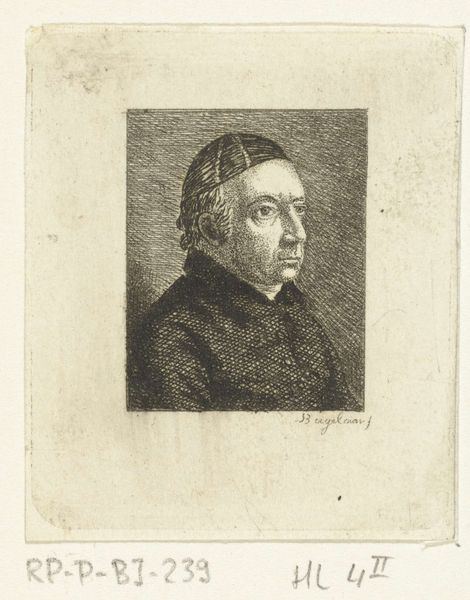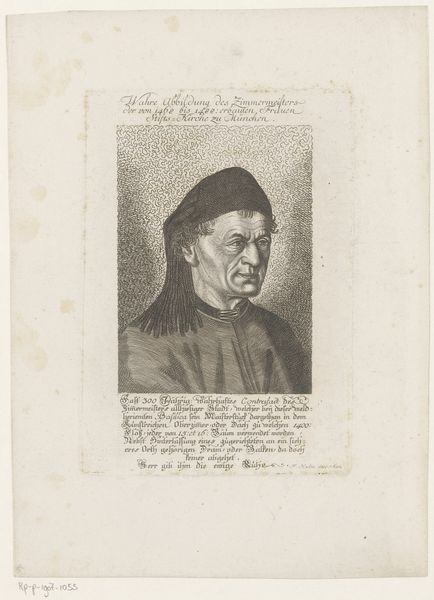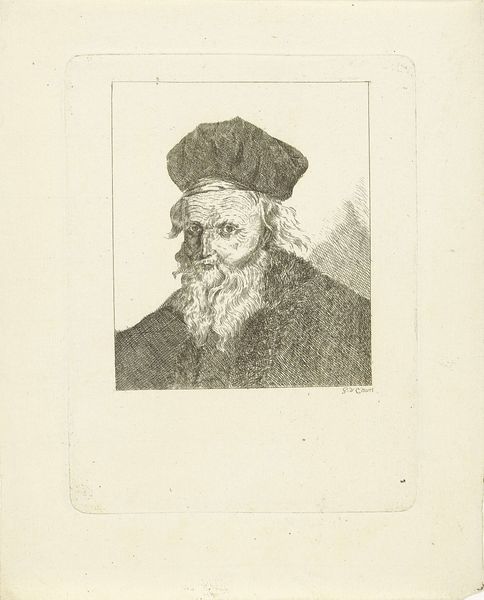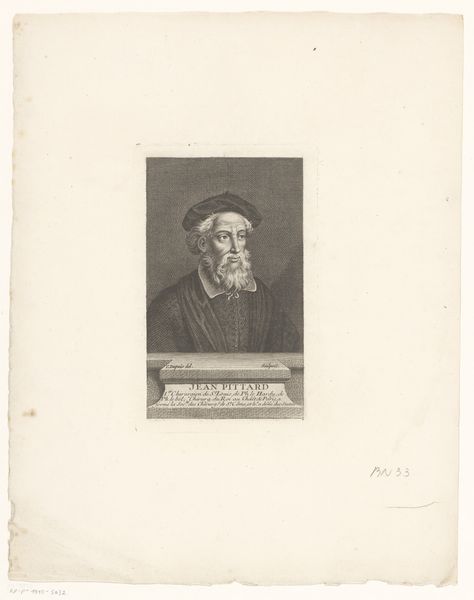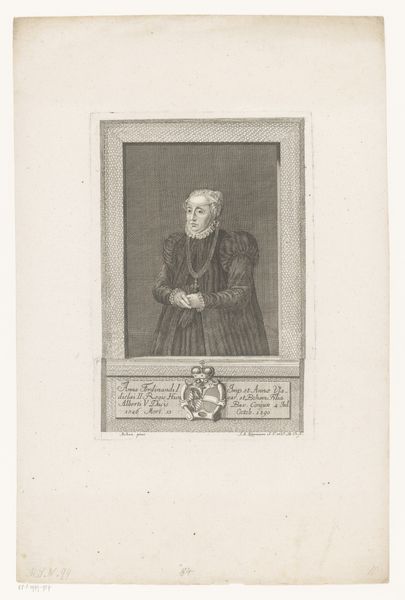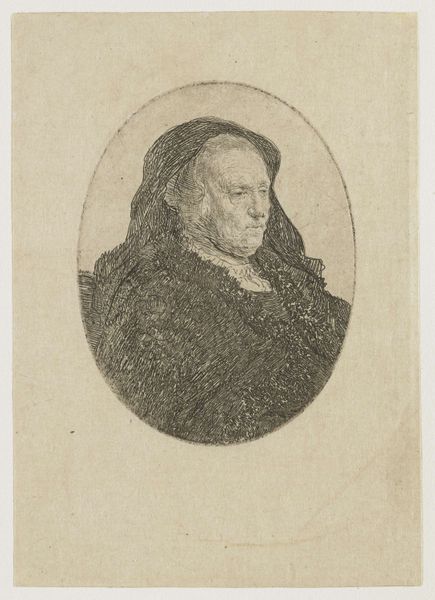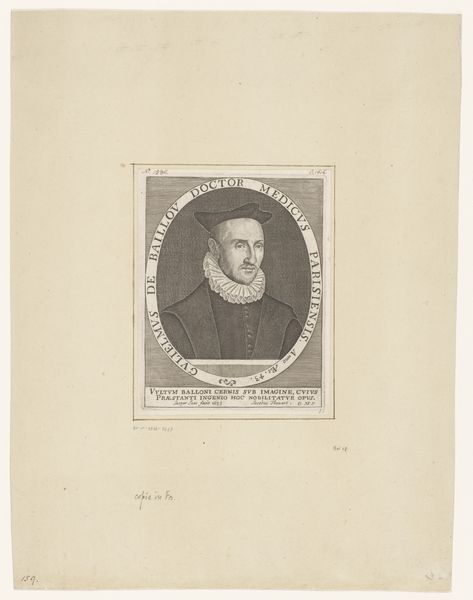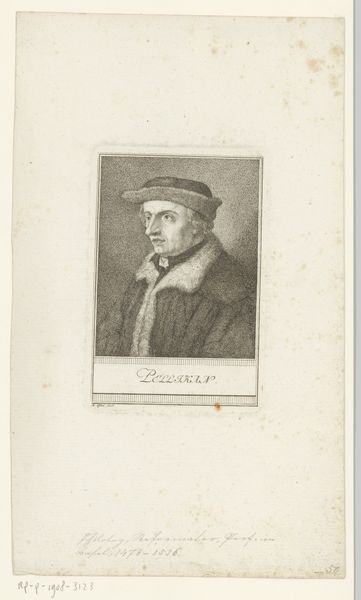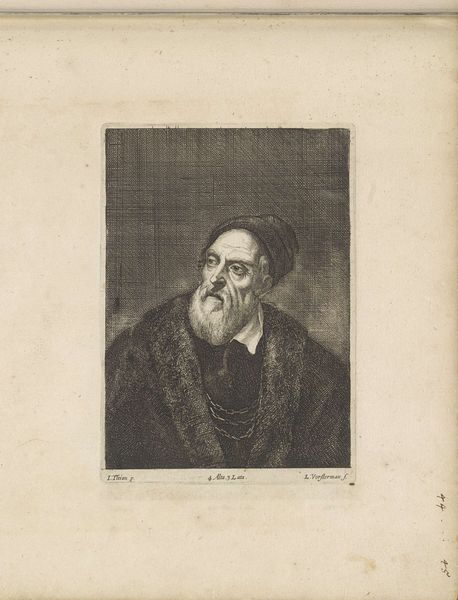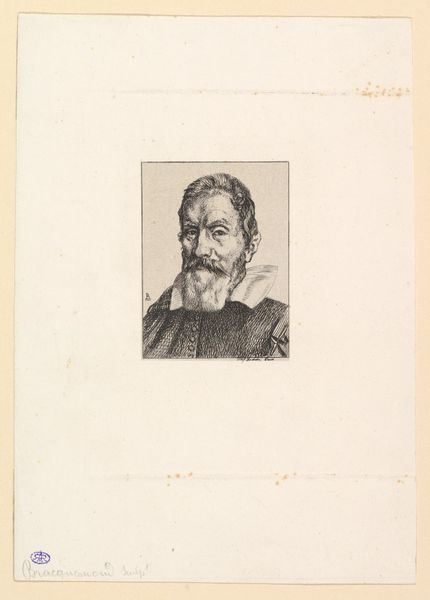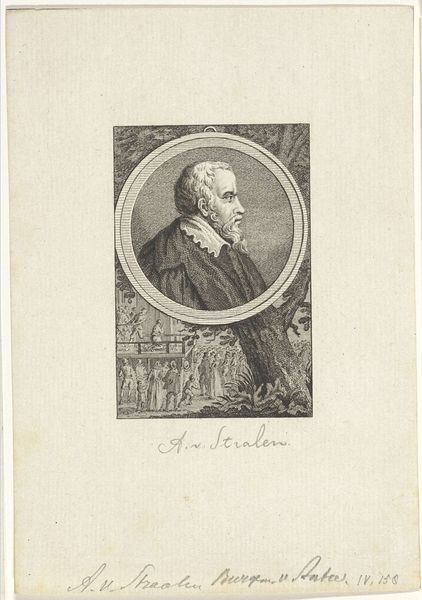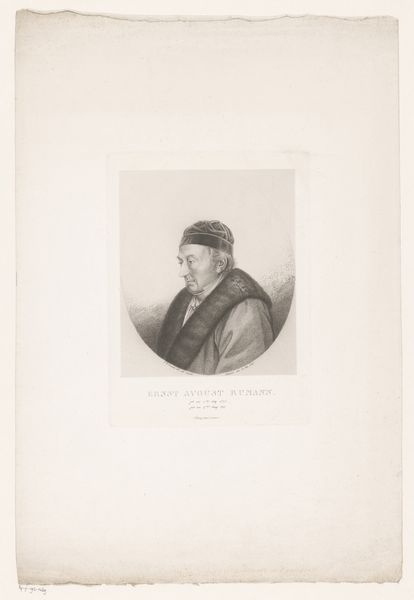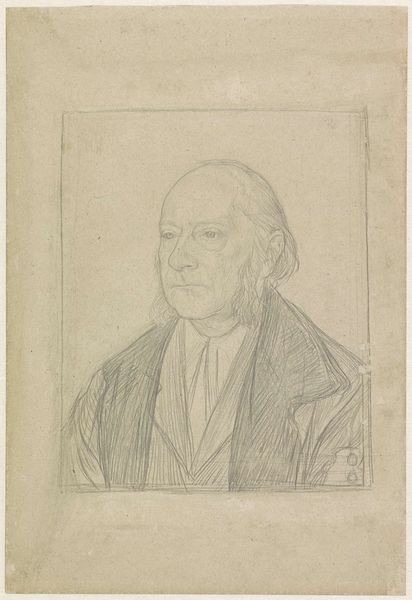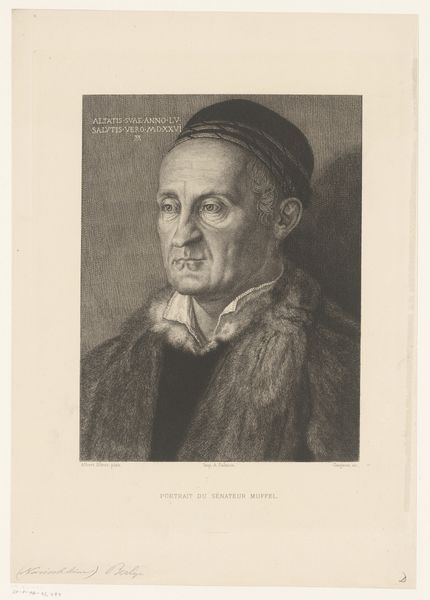
print, etching
#
portrait
# print
#
etching
#
history-painting
#
realism
Dimensions: height 54 mm, width 45 mm
Copyright: Rijks Museum: Open Domain
This tiny portrait of a Bremen merchant, Mr. Hagedorn, was etched by Ernst Willem Jan Bagelaar in the late 18th or early 19th century. As an etching, the image would have been created by coating a copper plate with wax, then drawing through the wax to expose the metal. The plate would then be submerged in acid, which bites into the metal, creating recessed lines. Ink is then applied to the plate and wiped off the surface, remaining only in the etched lines. Finally, the plate is pressed onto paper, transferring the image. The act of etching, a chemical process, seems fitting for a portrait of a merchant in Bremen, which was then a key trading center in Europe. The etcher needs to work methodically, like a careful accountant, to produce a perfect result. Here, the sharp, confident lines have captured the sitter’s likeness, and hint at his status in the world. So, even a small print like this can tell us something about the intersection of labor, representation, and trade.
Comments
No comments
Be the first to comment and join the conversation on the ultimate creative platform.
